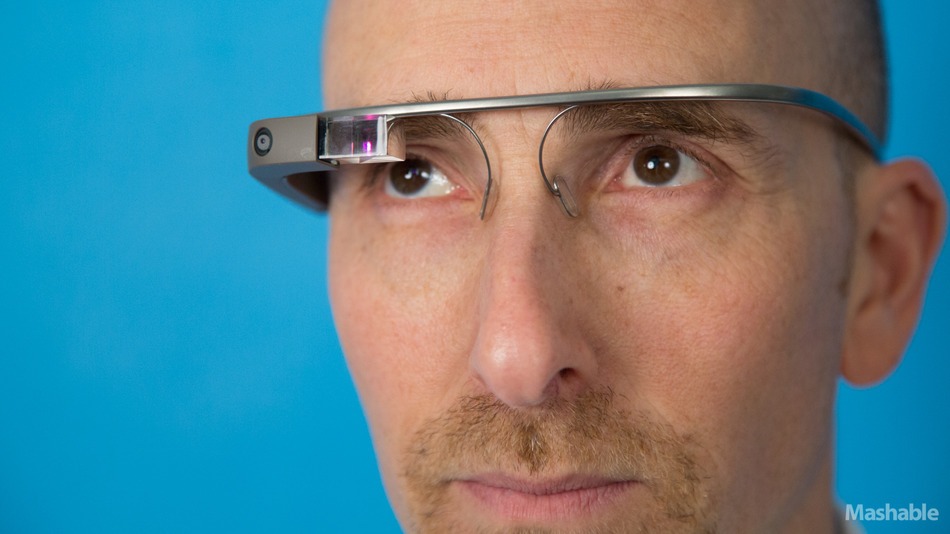FAQ released for Google Glass
The newly posted FAQ for Google Glass (basically a computer inside a pair of glasses that rests above your eye) makes it much easier to understand the amazing product – how it will work, what exactly it is and does, and all the little ins and outs.
The online FAQ was created in response to a plethora of questions that people curious about the product had sent in to the company. The FAQ is divided into four setions to provide information and answers about google’s innovative eyewear.
The first section “General Glass Questions” answers the most basic question: What exactly Glass is, what Glass will do, and when it will be available. It talks about technological dependence and test subjects, how people have been using the product, and why the product is beneficial and useful.
The second section “Glass Specs Questions” gives information that deals with the details: what the screen will look like (a 25 inch color TV), the technical specs and weight, how much it will be able to store (16 GB), and information about prescription Glass for those who need it.
The third section “Glass Security & Privacy Questions” is about privacy and how Glass and Google will deal with this very sensitive, and controversial issue. In the FAQ, Google promises that they are concerned with privacy and reassures users about its privacy policy. It addresses the bans, the fears of facial recognition technology (where you would be able to recognize the people walking past you and then be able to look them up) and control. Google has tried to quell some of the fears. They state that Glass users will have control over the information they share with Google. Also, they promise that non-Glass users will be able to tell if their picture is being taken by someone with Glass.
No actual changes have been made however that differ from Goggle’s privacy policy now and politicians have been getting into an uproar. U.S. Rep. Joe Barton of Texas was “disappointed” with Google and the lack of response to the privacy issues of Glass. Barton thinks that Google is not doing enough to protect the general public, and that more should be done to ensure that the public’s privacy is not going to be violated:
I am disappointed in the responses we received from Google. There were questions that were not adequately answered and some not answered at all. Google Glass has the potential to change the way people communicate and interact.
When new technology like this is introduced that could change societal norms, I believe is is important that people’s rights be protected and vital that privacy is built into the device.
Congressional Leaders (including reps. John Barrow, Steve Chabot, Henry C. Johnson, Jr., Walter Jones, Richard Nugent, Bobby Rush) wrote to Google CEO Larry Page this May, asking the tech leader to establish some controls to protect the “privacy of the average American.” The letter asked about facial recognition technology (which would reveal personal information without consent) and about Glass’ ability to record videos and take photos. It’s a scary thought, to think that every action you’ve ever done and every moment could soon be recorded and snapshotted and then strung together through facial recognition for anyone walking by to see. This device, if it goes severely mainstream, has the power to completely change how people live. Google stated that they “will not be approving a facial recognition Glassware at this time” but the words “at this time” do little to reassure.
Goggle Glass will require voice activation before one can take photos or video and they will “prohibit developers from disabling or turning off the display when using the camera.” Taking a picture will activate the screen which is a visible change the general public can notice .Also, all files on Glass can be deleted by users, headsets remotely wiped, and some memory even locked.
The fourth and final section “Glass Software Questions” of the FAQ talks about Glass’ software. These answers deal with Google’ plans for apps from third-parties, updates, Glassware partners, such as Facebook, Twitter and CNN, and developer policies.
The Glass is incredibly innovative and advanced and a lot of people are still very confused about its specs and possibilities. Glass FAQ does a lot to clear up questions and fill-in-the-blanks, but there is still a lot of gray area about the privacy issues and about how this technology will change things.
Google Glass is already available to those who paid $1,500 for the prototype. Currently, programs and applications are being developed so that later this year, when it does go public, the launch will be easy and entertaining for users. Fear it or embrace it, either way it’s coming.

